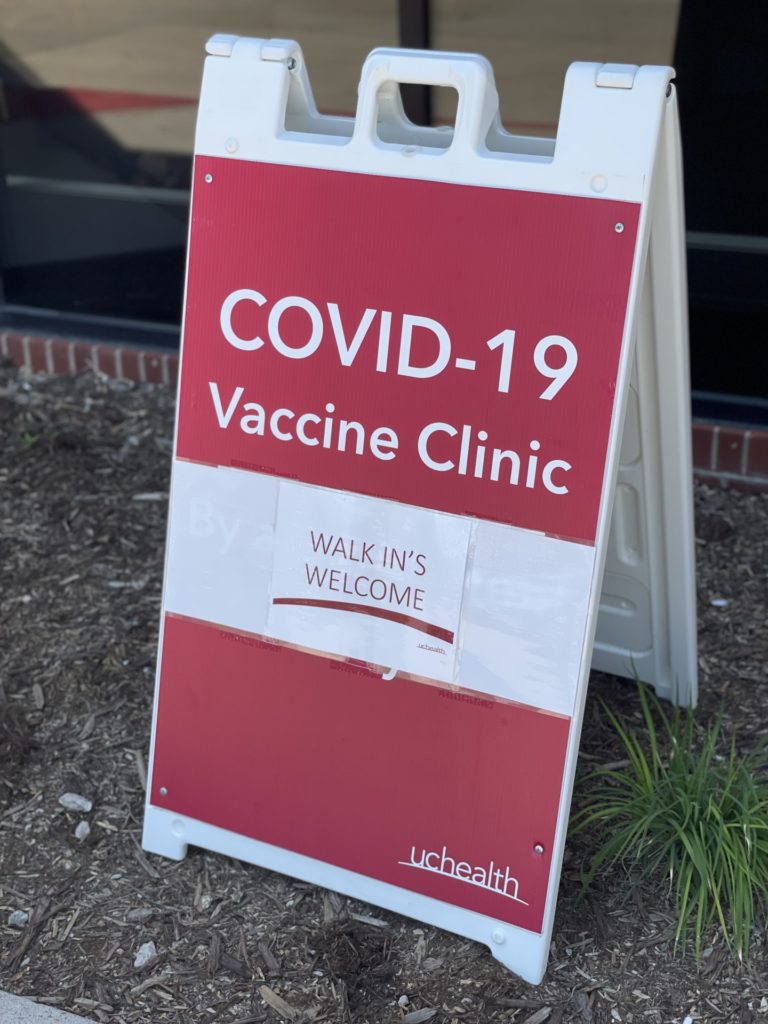 A new survey shows that a majority of Colorado State University students agree that university community members should be encouraged to get the COVID-19 vaccination.
A new survey shows that a majority of Colorado State University students agree that university community members should be encouraged to get the COVID-19 vaccination.
According to the survey by CSU’s Social Norming Task Force, 82.0% of students agree or strongly agree that the availability of vaccines will help control the COVID-19 virus.
Additionally, 79.5% of students agree or strongly agree that all faculty and staff should be encouraged to get vaccinated for COVID-19; and 77.6% of students agree or strongly agree that all students should be encouraged to get vaccinated.
The Spring Semester CSU Social Norming Survey was administered April 1-16 to a random sample of 5,000 undergraduate and graduate students enrolled at CSU. A total of 724 students responded for a 14.5% response rate.
The survey was designed by the Social Norming Data Gathering subgroup to help the task force understand how CSU students felt about public health behaviors to reduce the spread of COVID-19. The results will soon be available at covid.colostate.edu/socialnorms.
The survey’s results follow the CSU System’s announcement that the university will require COVID-19 vaccinations for students, faculty and staff this fall — contingent upon full approval of one or more vaccines by the U.S. Food and Drug Administration.
Vaccine results: Spring Semester CSU Social Norming Survey
84.4% of students agree or strongly agree that “those with underlying health conditions should be encouraged to get vaccinated for COVID-19.”
82.0% of students agree or strongly agree that “the availability of the COVID-19 vaccine will help control the COVID-19 virus.”
79.5% of students agree or strongly agree that “all faculty and staff should be encouraged to get vaccinated for COVID-19.”
77.6% of students agree or strongly agree that “all students should be encouraged to get vaccinated for COVID-19.”
Public health behaviors
The Social Norming Survey also examined the students’ perceptions when it came to returning to campus.
The majority of students completely or somewhat agreed that they were motivated to practice smart behaviors — physical distancing, wearing a face covering, hand washing, using hand sanitizer, staying home when sick, and avoiding large gatherings — to ensure the health of the CSU community.
Key results: Spring Semester CSU Social Norming Survey
When students were asked about returning to campus in Fall 2021, large percentages agree that these measures should be in place:
86.1% The availability of sanitizing products around and in classrooms
83.6% The choice to meet with advisors/faculty/staff in person or remotely
80.3% Continued choice for course format (online, in-person, or hybrid).
67.7% Continued hybrid course offerings for large classes
66.0% Required use of facial coverings in classrooms
65.4% Required use of facial coverings in large gatherings
57.5% An effort to introduce large campus events
33.1% No campus events
17.3% The removal of all public health guidance
The Spring Semester Survey is the latest from the Social Norming Task Force, a committee of more than two dozen faculty, staff and students charged with correcting misperceptions students may have involving public health behaviors. The task force came out of the Student Life Recovery and Continuity Workgroup, one of the groups executing President Joyce McConnell’s COVID-19 recovery plan.
Since July 2020, the task force has conducted several surveys to gauge student perceptions, which has resulted in signage based on the data to promote public health behaviors such as physical distancing, washing hands and using hand sanitizer, keeping gatherings small, and staying home when sick.
Through all of the surveys, a majority of students regularly agreed that they were motivated to practice public health behaviors to ensure the health of the CSU community.
Public Health Ambassadors

CSU Public Health Ambassadors meet with people outside of Morgan Library in March. Photo by John Eisele/CSU Photography
During the Spring semester, the Social Norming Task Force also launched its Public Health Ambassadors program in which students were stationed in visible places on campus to promote public health behaviors.
The ambassadors rewarded students with stickers, face coverings and other items for practicing public health behaviors. They also made observations identifying campus areas where compliance was lacking.
Social Norming Task Force leadership is assessing its next steps based on the data, CSU plans for summer and fall, and the trajectory of the pandemic.
Task force leaders Laura Giles, associate executive director of housing and dining services, and Jody Donovan, assistant vice president for student affairs and dean of students, both expressed appreciation for the task force’s efforts throughout the year.
“We are very proud of the efforts and outcomes of the CSU social norming campaign,” Giles said. “The committee members and Public Health Ambassadors worked tirelessly to reinforce the campus messages regarding the public health guidance. Rams Take Care; Rams Take Action was illustrated by the team’s dedication.”